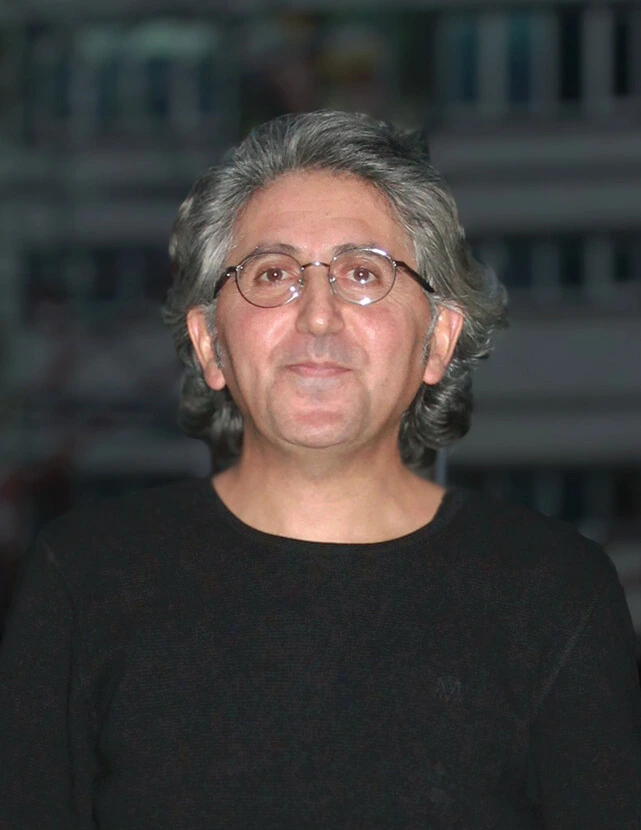New Developments in Prostate Cancer: The Road to More Personalized Medicine


ONCOLife |
26 July 2024
In our discussion about the future of personalized cancer treatment, Dr. Tara Frenkl, Bayer's Head of Global Medical Strategy, emphasized the company's focus on prostate cancer. She highlighted Bayer's commitment to developing innovative therapies aimed at extending survival and improving the quality of life for cancer patients.
Click the picture to view the PDF version: Pg 19-24.
In this exclusive interview with ONCOLife, Dr. Tara Frenkl noted that Bayer Oncology presented a comprehensive program (25 abstracts) at the ASCO 2024 Annual Meeting, featuring a series of key trials in prostate cancer including ARASENS, ARASTEP, and ARAMIS, emphasizing it as a significant focus area for the company.
Dr. Tara Frenkl Unveils Bayer’s Latest Research
Could you give us some information about your background and your professional journey?
Dr. Frenkl: My entire career has been dedicated to medicine, first as a pharmacist then a urologic surgeon where I was involved in treating prostate cancer patients. While I earnestly enjoyed my job, I felt an unrelenting pull to improve treatment options for all patients and realized I could achieve this goal by working in research and development in the pharmaceutical industry.
In pharma, I had the good fortune to work in several different therapeutic areas and then transitioned into oncology at a very exciting moment when ground-breaking therapies were being developed. I also recently also took on the role of pharmaceutical industry representative to FDA Oncology Drug Advisory Committee. It is a privilege to serve in this capacity on behalf of the pharmaceutical industry and contribute to these important discussions relating to the regulatory approval of drugs in the United States.
Could you share an overview of Bayer’s presentations at ASCO 2024 Annual Meeting? Additionally, what were your impressions of the events, particularly in relation to the oncology community’s response to Bayer’s research?
Dr. Frenkl: This year at ASCO, Bayer Oncology showcased an impressive 25 abstracts, and we presented new data from across our oncology portfolio. Prostate cancer remains a principal focus area for Bayer, and we presented findings across various stages of the disease.
One highlight was the darolutamide data from a post hoc analysis of the Phase III ARASENS trial evaluating post-progression survival with darolutamide and androgen deprivation therapy (ADT) plus docetaxel versus ADT with docetaxel in patients with metastatic hormone-sensitive prostate cancer (mHSPC).
The results continue to be compelling: darolutamide and ADT plus docetaxel significantly increased overall survival, reducing the risk of death by 32.5% and delayed time to progression in mHSPC patients. Notably, patients receiving darolutamide and ADT plus docetaxel had similar survival across all post-progression therapies whereas those receiving placebo and ADT plus docetaxel quickly progressed to metastatic castration-resistant prostate cancer (mCRPC) and treatment with an ARPI in ARPI-naïve patients improved survival.
Additionally, we presented follow-up analysis from the Phase III ARAMIS trial, which evaluated the association between prostate-specific antigen (PSA) levels and risk of radiological progression in patients with non-metastatic castration-resistant prostate cancer (nmCRPC). The data revealed that darolutamide plus ADT increased overall survival and also achieved deep and durable PSA responses, with low rates of PSA progression ± radiological progression compared to placebo plus ADT.
We also provided an overview of the ongoing Phase III ARASTEP trial, investigating whether darolutamide plus ADT improves radiological progression-free survival as assessed by prostate-specific membrane antigen positron emission tomography-computed tomography (PSMA PET-CT), versus ADT alone, in hormone-sensitive prostate cancer patients with high-risk biochemical recurrence (BCR).
This study is important because up to half of prostate cancer patients treated with radiotherapy or radical prostatectomy as primary therapy
develop recurrence. PSMA PET-CT offers a potential met-hod for earlier detection. This study will evaluate whether this early initiation of treatment with darolutamide improves patient outcome.
Furthermore, as part of Bayer’s precision drug development strategy, we highlighted long-term efficacy and safety data from VICTORIA study for larotrectinib which is a highly selective tropomyosin receptor kinase (TRK) inhibitor. This included outcomes in patients with TRK fusion cancer treated with larotrectinib in clinical trials compared with patients treated with non-TRK inhibiting therapies in the real-world setting.
The data demonstrated that patients treated with larotrectinib had longer overall survival and better outcomes across all measured time-to-event endpoints versus those treated with non-TRK therapies. We also presented a late-breaking abstract on BAY 2927088 in patients with HER2-mutant non-small cell lung cancer (NSCLC) from the Phase 1/2 SOHO-01 trial.
BAY 2927088 is an oral, small molecule tyrosine kinase inhibitor under development as a potential new targeted therapy for patients with NSCLC harboring HER2 activating mutations. These presentations underscore Bayer’s commitment to advancing oncology treatments and improving patient outcomes through innovative research and development.
With prostate cancer as a key focus for Bayer in oncology, could you elaborate on the specific unmet needs in prostate cancer treatment that Bayer is prioritizing in its current research?
Dr. Frenkl: Prostate cancer is the second most commonly diagnosed cancer in men, and is a key area of focus for Bayer. Each year, approximately 1.5 million men receive a prostate cancer diagnosis, and alarmingly, about a third of those with nmCRPC will develop metastases within two years.
While progress has been made in treating prostate cancer, there are still significant unmet needs. Patients require more treatment options that not only delay disease progression and extend survival, and very importantly, maintain a high quality of life. Bayer is at the forefront of addressing these needs through innovative and ri-gorous clinical development programs. We are exploring the broader potential of radium-223 dichloride to prolong survival in men with advanced prostate cancer.
Additionally, we are investigating darolutamide’s capacity to become a cornerstone therapy in prostate cancer treatment. Our commitment is to push the boundaries of prostate cancer care, offering new hope and better outcomes for patients around the world.
How does Bayer incorporate quality of life measures into the development and evaluation of your oncology treatments, particularly for prostate cancer?
Dr. Frenkl: At Bayer, we recognize that maintaining patients’ quality of life can be just as important as extending survival. This principle is deeply embedded in the development and evaluation of our oncology treatments, including those for prostate cancer.
We design our clinical trials to include comprehensive quality of life assessments. These assessments utilize validated tools to help us gather detailed information on how our treatments impact patients’ physical, emotional, and social well-being.
In the ARASENS trial, secondary endpoints included quality of life and patient-relevant endpoints with results showing that darolutamide not only extended overall survival, but also had a favorable tolerability profile and ability to maintain patient quality of life with control of disease-related physical symptoms and pain.
We collaborate with academic institutions, healthcare providers, and patient advocacy groups to advance our understanding of quality of life issues in prostate cancer. These partnerships enable us to stay at the forefront of quality of life research and integrate the latest findings into our development processes. Our commitment to quality of life continues even after our therapies are approved.
We conduct post-marketing studies and collect real-world evidence (RWE) to monitor the long-term impact of our treatments on patients’ quality of life. This ongoing surveillance helps us make necessary adjustments and improvements to our treatment protocols, ensuring that we continue to meet the needs of patients effectively.
Could you discuss the advancements in targeted radionuclide therapies, particularly with XOFIGO, and its role in managing prostate cancer with bone metastases?
Dr. Frenkl: Xofigo (radium 223-dichloride) is the first and remains the only approved targeted alpha therapy (TAT) proven to extend the lives of men with mCRPC with bone metastases. Targeted radionuclide therapy (TRT), specifically the area of TAT, is a strategic focus area of our oncology research and development. Bone metastases in people with mCRPC may contribute to the symptom burden of disease, including pain which can get in the way of day to day activities.
As pioneers and leaders in the field of TRT, we harness the high precision energy of alpha particles to address high unmet medical needs across a variety of tumor types. Alpha particles exhibit both high-energy, short-range radiation that causes difficult-to-repair double strand DNA damage in cancer cells, while minimizing the exposure to healthy cells.
Radium-223 dichloride exemplifies Bayer’s excellence in the global development, production, and supply of a radionuclide therapy It is a recommended therapy in major guidelines worldwide for men with bone-predominant mCRPC who progress on anti-hormonal therapies - whether chemotherapy naïve men or previously treated with chemotherapy.
Radium-223 dichloride has been shown to significantly improve overall survival by 30% compared to placebo and has an established safety profile with Grade 3-4 adverse events similar to placebo. Additionally, it positively impacts quality of life by delaying time to symptomatic skeletal event and severe pain (time to opioid), and without the lifestyle disruptions associated with chemotherapy.
Radium-223 dichloride is approved in more than 50 countries and since its first approval in 2013, over 100,000 patients have been treated globally, underscoring its critical role in managing prostate cancer with bone metastases.
How does Bayer envision its role in the oncology landscape over the next decade, particularly in relation to prostate cancer?
Dr. Frenkl: Bayer has the ambition to help even more cancer patients in the future and has a clear goal to become a top oncology company. Our oncology research and development strategy is disease-oriented and based on precision drug development (PDD). This approach aims to expand the druggable target pool, develop efficacious and better tolerated medicines, and tackle drug resistance.
The PDD process begins by identifying specific tumor vulnerabilities and establishing a direct link to the disease. This enables fast identification of the most promising targets and commercially viable programs helping us meet the needs of cancer patients more effectively. We are committed to precision oncology through investments in new models, partnerships and collaborations for research, innovation, and next generation treatments.
Our early pipeline includes areas such as precision molecular oncology, next-generation immuno-oncology, and targeted radionuclide therapies (TRTs). While we have a wealth of expertise and experience in these areas, we are also open to exploring new opportunities.

Prostate cancer will remain a key focus for Bayer. We have a clear vision to become a leader in prostate cancer with a growing portfolio, prioritizing research and development to address the most pressing unmet needs across different stages of the disease.
How does real-world evidence (RWE) influence Bayer’s strategies in clinical development and post-marketing activities for oncology products like darolutamide?
Dr. Frenkl: RWE plays a crucial role in shaping Bayer’s strategies for the clinical development and post-marketing activities of oncology products like darolutamide. By tapping into available data from everyday clinical practice, we uncover invaluable insights into the effectiveness, safety, and overall impact of our treatments outside the controlled settings of clinical trials.
In clinical development, RWE helps us pinpoint unmet needs, optimize patient selection, and refine clinical trial designs to ensure they reflect real-world patient populations and treatment environments. This approach results in more robust and generalizable study results, enhancing the relevance and applicability of our findings.
Post-marketing, RWE supports ongoing safety monitoring and pharmacovigilance, offering a comprehensive understanding of the long-term effects and benefits of our medicines. It also allows us to track treatment outcomes ac-ross diverse populations and practice settings, guiding any necessary adjustments to treatment guidelines and supporting regulatory submissions for new indications or formulations.
As the availability and accessibility of RWE data, analytics and AI rapidly increases, we are well poised to utilize these insights to better meet the evolving needs of patients and health care providers so that we can maximize benefit of our medicines in the real-world setting.











Comments
No Comments Yet!